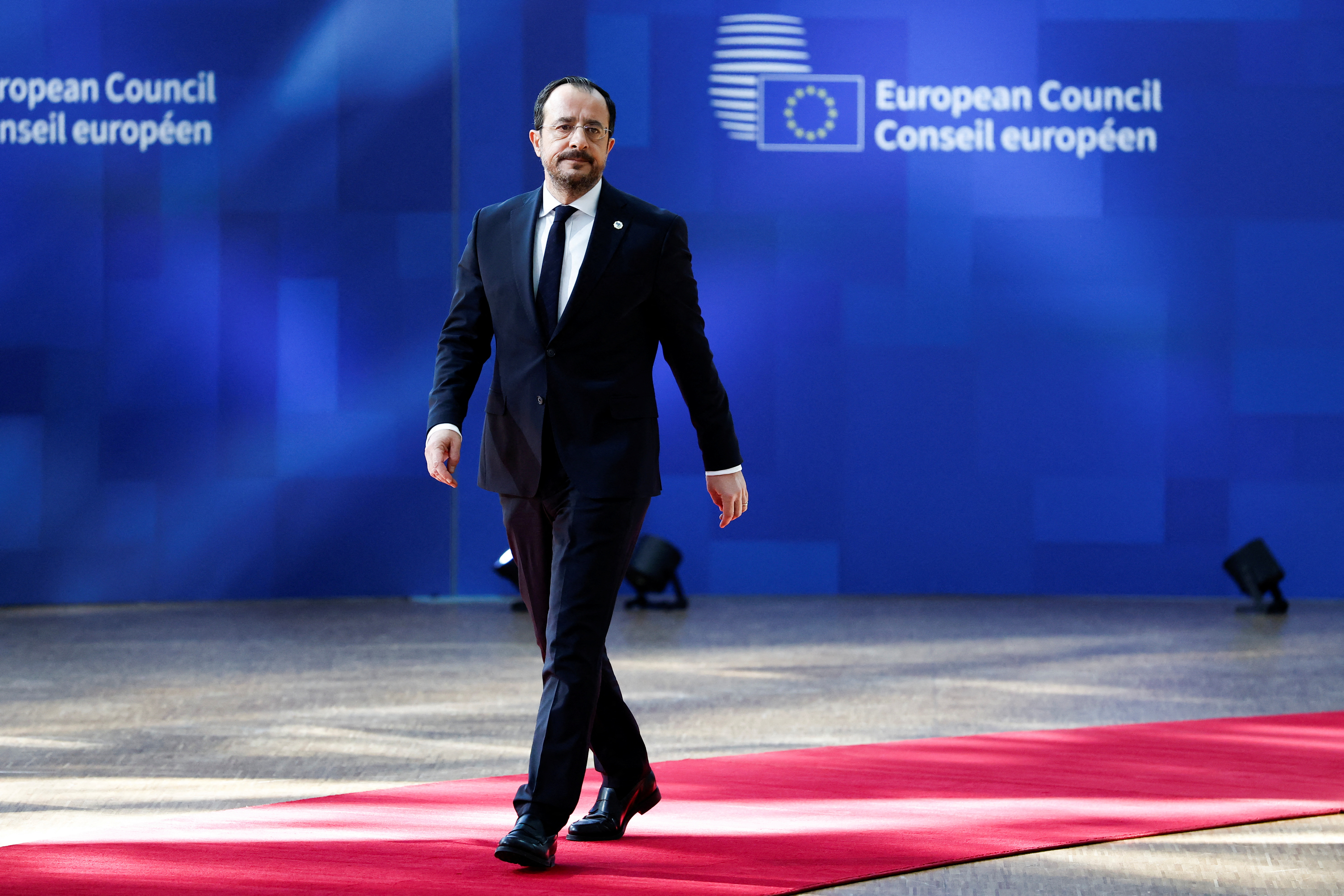President Nikos Christodoulides and French President Emmanuel Macron discussed the implementation of the Great Sea Interconnector on the sidelines of Thursday’s European Council summit, director of the president’s press office Victor Papadopoulos said on Saturday.
The discussion came about as Greece’s independent transmission system operator Admie’s decision to temporarily suspend payments to French technology company Nexans for the manufacture and installation of submarine cables for the project, which is set to connect the electricity grids of Greece, Cyprus and Israel.
On Friday, Energy Minister George Papanastasiou had old CyBC the decision was understandable “in the context of the technical, fiscal, and geopolitical risks inherent to the project”, with it having been revealed that payments were suspended after Turkish warships had reportedly “disrupted” seabed surveys related to the project.
Admie to date has paid Nexans about €200 million while the next installment of €70m had been due on February 28. In the event that Nexans decides to trigger a compensation clause should the project stall, Admie would have to reimburse the European Union for €160m in funds already disbursed.
Admie, a 51 per cent stakeholder in the project, is still awaiting the Cyprus government’s decision over whether or not it will pay the €100m it has requested to buy into the project’s holding company.
The Cyprus government took receipt of a cost-benefit analysis for the plan in July, but two months later in September, George Panteli, the finance ministry’s then permanent secretary, had said Cyprus’ authorities had not yet seen the project’s financing plan.
He said his ministry was at the time “not in a position to put forth” any concrete statement regarding the project’s risks, neither from a geopolitical standpoint, nor regarding the potential impacts of the project on Cyprus’ economy and energy market.
The wait for a decision had irked Greek Energy Minister Theodoros Skylakakis earlier in the year. He had said in April that Cyprus may miss deadlines should it delay a decision on the matter, and pointed to the European Commission’s financial support for the plan under its Connecting Europe Facility, and an extra €100m pledged through the European Union’s Recovery and Resilience Facility.






Click here to change your cookie preferences